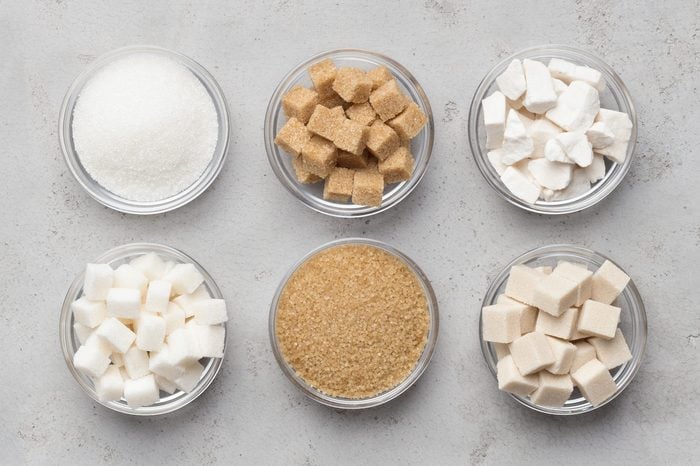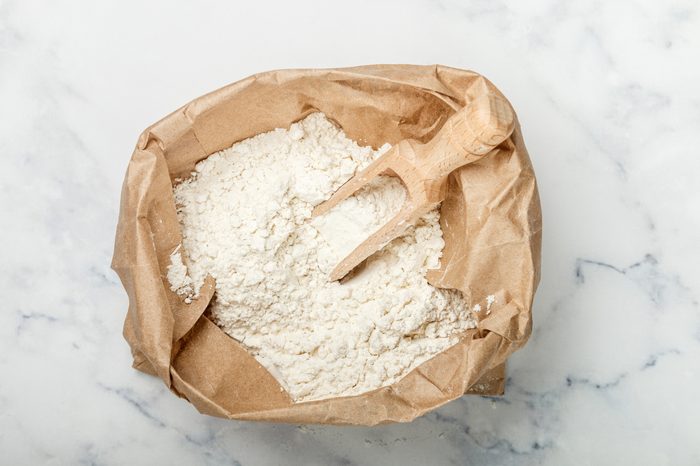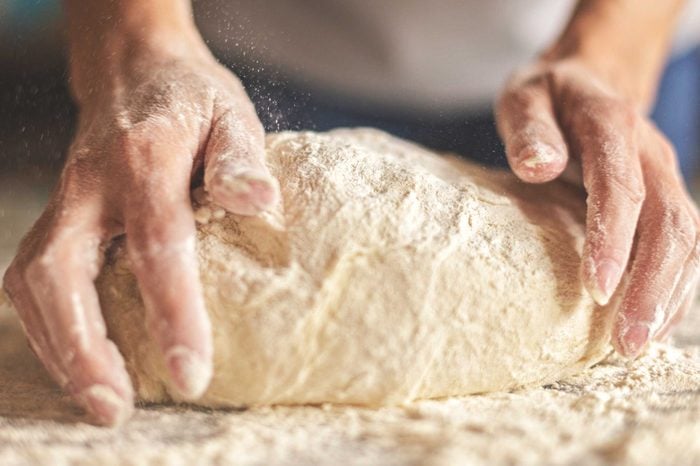People with arthritis might want to avoid these foods
While there is no list of “arthritis-triggering foods” that all people with arthritis should avoid regardless of their health circumstances and specific condition (there are many different kinds of arthritis), there are certain foods that may promote inflammation and possibly aggravate symptoms. Whether or not a specific type of food is problematic can vary from person to person. If you have arthritis, you might want to experiment with limiting certain foods in your diet to see if you get some arthritis relief. Here’s what you need to know.

Dairy
One of the food types to consider avoiding if you have rheumatoid arthritis (RA) is full-fat dairy products, according to 2018 research published in Clinical Rheumatology. RA may flare up in response to the proteins found in dairy. (RA is an autoimmune condition that’s much less common than osteoarthritis, the type cased by wear and tear on the body over time.) Some people with RA may be intolerant to proteins found in milk. But not everyone with arthritis reacts the same way to milk—or to other various types of dairy. In a 2015 study of women with osteoarthritis published in Arthritis Care & Research, milk improved knee pain but cheese actually made it worse. Experiment to see how foods tend to affect your particular type of arthritis.

Fried foods
Fried foods contain a lot of saturated fat, which can worsen inflammation, says registered dietitian Lona Sandon, PhD, an assistant professor at the University of Texas Southwestern Medical Center in Dallas, who suggests switching to unsaturated fats. For example, try olive oil rather than butter to see if there are any improvements in symptoms.

Sugar
According to a study in American Journal of Clinical Nutrition, processed sugars found in many packaged snack foods can trigger the release of inflammatory molecules called cytokines into the body. This may exacerbate arthritis symptoms, making it another one of the foods to consider avoiding if you have arthritis.

Meat
Meat is higher in fat and calories than other foods, which are more easily metabolized into chemicals that cause inflammation in the body. It’s worse if you grill, sear, or fry meats at high temperatures because that mouth-watering charred flavor is actually from toxins called AGEs (advanced glycation end products) that may damage proteins in the body. AGEs are broken apart by cytokines, which can then cause inflammation. “We expect that increased levels of AGEs increase inflammation, although a direct link to arthritis is not firmly established,” says Jaime Uribarri, MD, a nephrologist at Mount Sinai Hospital in New York City, who has conducted many studies on the topic. (Here are 15 life hacks to make arthritis less painful.)

White flour-based products
White foods can be bad news for arthritis. For example, white rice, breads, and crackers—all of which contain refined carbohydrates. These foods also hike production of AGEs and can cause inflammation, according to the Arthritis Foundation. The molecular structure of refined (aka white) grains is fairly simple: “The body turns them into sugar more quickly, and sugar is highly inflammatory,” says registered dietitian Barbara Olendzki, nutrition program director of the Center for Applied Nutrition at the University of Massachusetts Medical School in Worcester. Choose whole or multi-grain carbohydrate options whenever possible.

Coffee
According to the Arthritis Foundation, the jury is still out regarding coffee’s effect on RA symptoms. Some older studies indicate an increased risk of the autoimmune condition, while others find no correlation. One thing we do know is that coffee does contain the antioxidant polyphenol, which can help fight free radicals in the body. The key (as with most things), the Arthritis Foundation recommends, is moderation: no more than one to two cups a day is probably best.

Gluten
Gluten, a sticky protein found in wheat and related grains, such as barley and rye, can promote inflammation in some people. (Oats are gluten free but can get contaminated while being processed, so check the label.) Those who have celiac disease, an autoimmune disorder in which gluten prompts the body to literally attack and injure the digestive tract, should go 100 percent gluten free. People with arthritis who have gluten intolerance, a less serious condition that can still trigger inflammation and other symptoms, may also want to cut out out gluten. New York-based registered dietitian and health expert Joy Bauer, suggests that people with certain types of arthritis, such as rheumatoid arthritis, get tested for celiac disease. Both celiac disease and RA are autoimmune diseases and often occur together, she says. Here are some surprising foods that contain gluten.

Alcohol
Alcohol doesn’t just impact liver function, it also disrupts interactions between other organs, potentially causing inflammation. Although some research suggests that red wine can help to keep the heart, muscles, and joints healthy, a study at the University of North Carolina at Chapel Hill published in Alcoholism, Experimental and Clinical Research found that excessive use of alcohol increases the production of inflammatory cytokines in the body. Stick with a maximum of one glass a day for women, two for men. (Don’t miss these 34 things you need to know about arthritis.)
